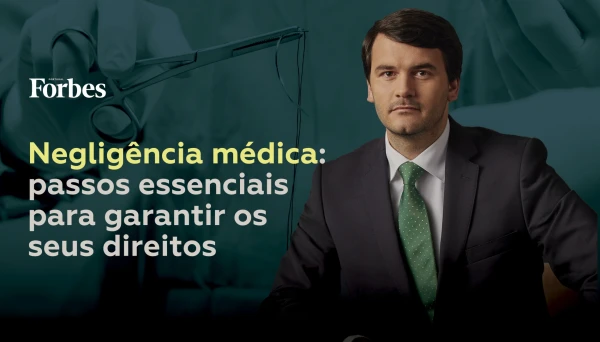
Medical Negligence: Essential Steps to Ensure Your Rights

Medical-surgical procedures naturally carry risks.
However, if the negative outcome of the procedure results from malpractice/violation of the leges artis or negligence, it may be possible to hold the entity and/or professional accountable.
Often, victims of medical error or negligence do not file any complaints or take legal action.
On one hand, there is a lack of knowledge about the means available to patients. On the other, there is a perception of near “impunity” for such acts—a notion that no longer aligns with current reality.
As is known, this type of evidence is often difficult to obtain. Therefore, when suspecting that something may have gone wrong during surgery or a medical procedure, it is important for the patient to know how to act in order to safeguard possible courses of action.
Thus, in the first instance, the patient, their family, or companions should act to collect as much information as possible about the situation, documenting it.
It is advisable to document all situations—with dates and the names of those involved. Later, this information may be essential to support the case.
Likewise, and as this is a right of every patient, it is important to access the medical records and history, preserving all available data.
To hold the entity or professional accountable, it will also be necessary to demonstrate that what occurred was not among the inherent risks of the procedure (which must be explained and properly communicated).
For this reason, it is advisable to have access to additional examinations, expert reports, or statements that can help prove, on the one hand, the existence of negligence, and on the other, the damage caused and its consequences.
In addition, and considering the possible consequences of medical negligence—such as anxiety, stress, depression, among others—it is important to seek specialised psychological support. This support should also be properly documented, including all related expenses.
Furthermore, it is essential to seek legal advice. A lawyer, equipped with the collected documentation, will play a crucial role in legally analysing the situation and its feasibility, being able to assist throughout the various phases and types of responsibility that may arise, namely: civil liability; disciplinary responsibility before the medical council; regulatory offence liability of the healthcare institution; and, in some cases, criminal liability.
The deadlines and specifics of legal remedies are complex, so if you have been a victim of medical negligence, you should seek support without delay.
In short, when faced with a suspected medical error, it is essential to act quickly, gather documentation, and seek expert support. The law offers protection mechanisms for victims, but these will only be effective if triggered in time.



